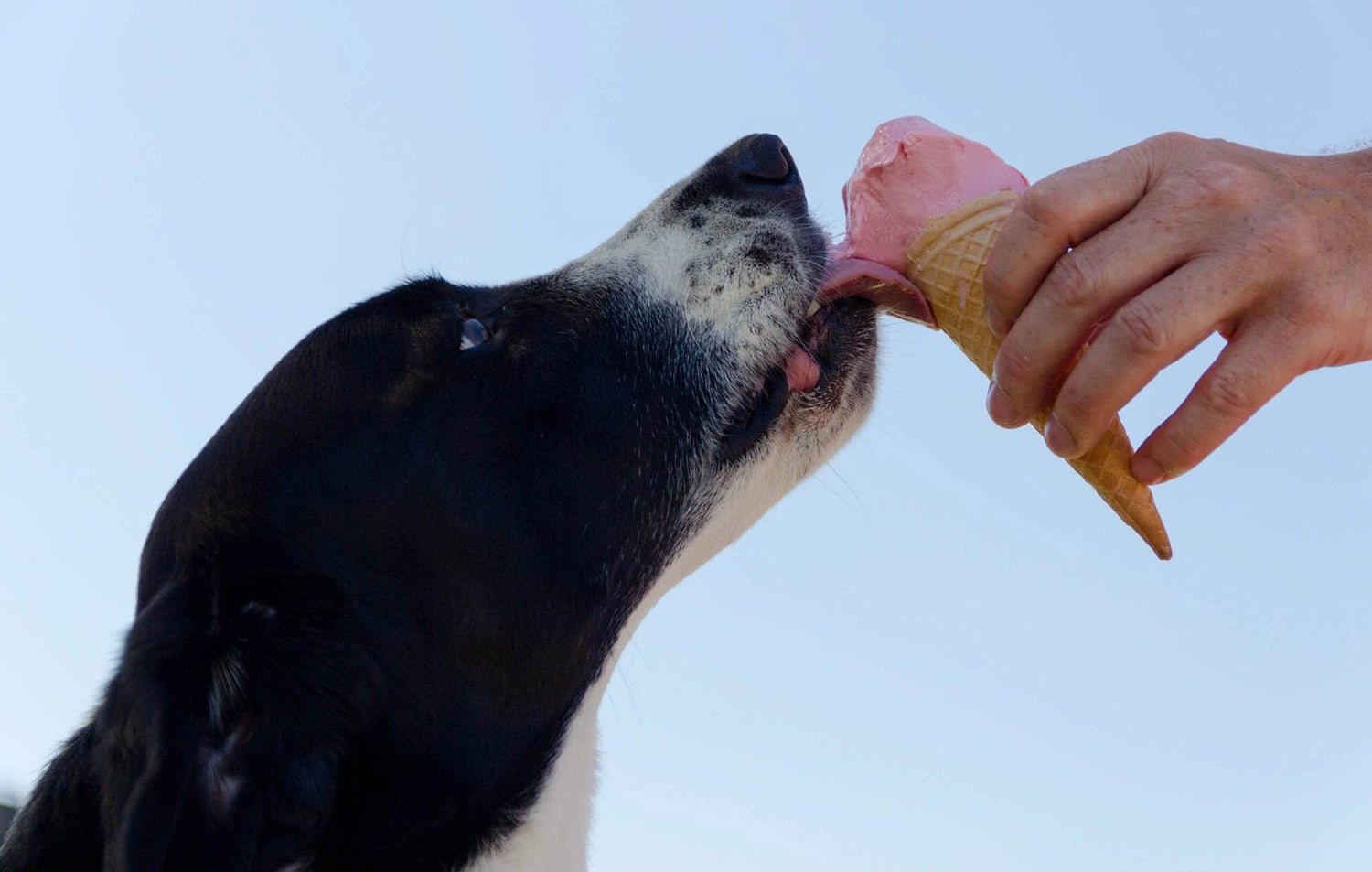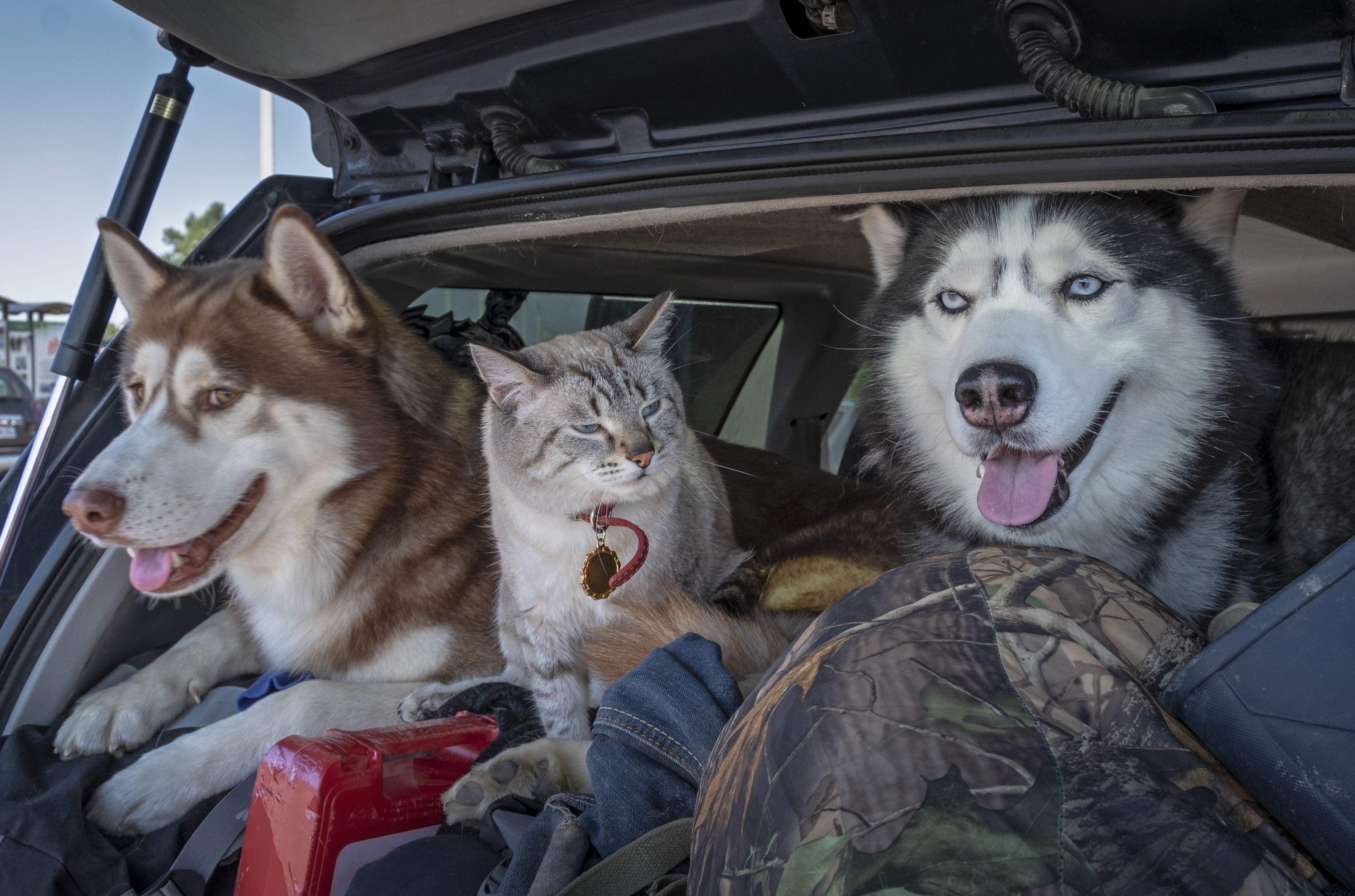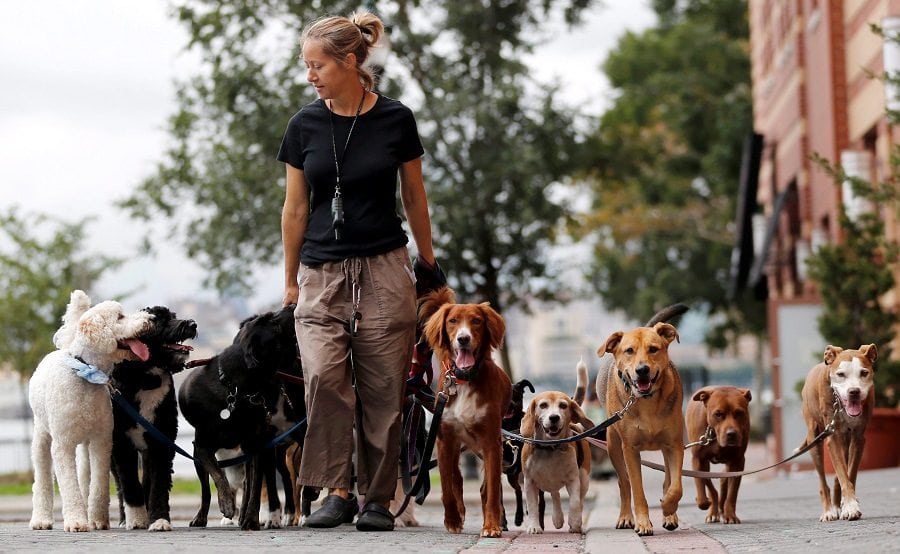What Human Food Can Dogs Eat?
We all love our dogs; nothing brings us more joy than to see our dogs healthy, happy, and playful. Most dogs have large appetites and will eat anything that we give them, and even things we don’t! We’re all guilty of tossing a piece of cookie or grilled chicken to our dogs sometimes, but how much is too much?
While it is okay to share our food with our dogs once in a while, it is essential to remember that not all human food is safe to be consumed by dogs.
Do Dogs Like Eating The Same Food As Humans?
Although most dogs won’t refuse whatever scraps fall under the table or be left on your plate, dDogs don’t enjoy certain foods the same way we do. Despite their amazing sense of smell, they actually have fewer taste buds on their tongue than humans! What might taste divine to us would just be bland or gross for dogs.
Dogs can't taste salt very well; therefore, salt should be kept to a minimum in their diet. This is because they are traditionally meat eaters, and meat already tastes salty. However, dogs do have specific taste receptors for water, while water is essentially tasteless to humans—maybe that’s why they slurp it up so fast when they’re thirsty!
Your dog’s sense of smell assists them in tasting their food before they put it in their mouth. They also have more taste receptors in the back of their throats, meaning they can taste and gulp down their food simultaneously.
Foods That Are Safe For Your Dogs To Eat
It is a popular but incorrect belief that dogs are carnivores. Dogs are, in fact, omnivores, which means that they derive their nutritional requirements from animal and plant-based diets. While dogs prefer to eat meat, they can also thrive on plant-based foods.
The following foods are absolutely safe for you to share with your dog if you happen to be eating it yourself:
White Rice or Brown Rice
Rice is a great source of carbohydrates for dogs and is easy to digest. Rice can easily be mixed with bits of cooked meat as a meal for the dog as it provides well-balanced nutrition for your pooch.
Carrot
Carrots are an excellent source of fiber, vitamins, and minerals and are low in calories. Carrots make excellent snacks for dogs and can be given as frequently as you wish.
Chicken
Chicken is an excellent source of protein and can be included in your dog’s diet. it should be noted, however, that all meat products should be cooked and deboned before being fed to your dogs. Deboning prevents your dog from ingesting sharp and indigestible pieces of bone, which can become choking hazards and potential intestinal obstructions.
Warning! - some dogs are allergic to chicken and will itch and scratch incessantly if they get too much poultry. If that is the case for your dog, then keep chicken, and chicken dog food or treats out of their reach.
Sweet Potato
Sweet potatoes are a great source of carbohydrates and vitamins and should be a part of a dog’s diet. They are easily digested, and dogs enjoy sweet potatoes as a tasty treat. Our dog sure did!

Fruit
It's always important to not feed your dog too many treats as many of the snacks on the market have a lot of artificial ingredients and extra calories; but one snack that is great for dogs are fruits. Fruits such as apples, bananas, cantaloupe, blueberries, mango, peaches, oranges and watermelon are make perfect snacks that are not only delicious but are loaded with vitamins.
Beef
Beef can easily be given to your dog as long as it is cooked. Beef is an excellent source of protein; give it plain without mixing with any sauces or added salt—they can’t taste it anyway! Dogs fed a raw food diet will eat meat raw but make sure they are prepared properly to avoid making your dog sick.
Pork
Pork can be fed to your dog as long as it is cooked, as with all other meats. Processed forms such as ham and bacon should be avoided as these contain too much salt
Salmon
Salmon is an excellent source of omega-3 fatty acids and is highly recommended to be fed to dogs. It has excellent anti-inflammatory properties and helps maintain a smooth and shiny coat on your dog. Just make sure that you get rid of the bones before you give your dog a bite.
Turkey
Turkey is okay to be fed to your dog since it is a great source of protein. It should ideally be fed boneless, skinless, and cooked plain without sauces or seasonings.
Corn
Corn is healthy and easily digested by dogs. Corn is safe to be consumed by dogs and can be a part of their routine diet.
Quinoa
Quinoa is an excellent source of fiber and carbohydrates that dogs need in their diet. It can be combined with any cooked protein and fed to your dog daily.
Oatmeal
Oatmeal that is plain and without sugar and flavor is a great source of fiber for your dog and is safe to share. If your dog begs for food during breakfast, you can give them some plain oatmeal and enjoy the morning together!

Foods That Your Dog Can Eat In Moderation
We shouldn’t eat candy for dinner, but it’s ok to have every so often; likewise, there are human foods that you can give your dog, but only in moderation. The following foods are safe for dogs but best given as occasional treats.
Milk
You can give your dog milk and other dairy products, but only in limited amounts as they can cause digestive issues. Some dogs may even be lactose intolerant and drinking milk could lead to gas, stomach pains and vomiting.
Honey
Honey can only be given once in a while as a treat to dogs. While honey is not poisonous for dogs, too much is also not good as the sugar content in honey can make your dog overweight and unhealthy.
Cheese
While cheese is safe to give, like milk it might cause adverse reactions in some dogs. Therefore, it is best to try giving your dog a small piece of cheese first to see how they react. Some dogs might experience gastrointestinal issues and may not be able to digest cheese.
Tomatoes
You may have heard that the tomato plant is toxic to your dog. While this is true for the leaves of the plant, dogs can eat the actual tomato.
Fully ripe tomatoes should only be given in limited amounts as treats because they contain an active ingredient called tomatine. Tomatine is present in large quantities in green or unripe tomatoes, but also in the green stems or leaves of red tomatoes. This ingredient can cause an increased heart rate and difficulty breathing in dogs.
Popcorn
Popcorn often contains butter and salt, which is not good for your dog. Plain air-popped popcorn without any additives is safe to be consumed by dogs but only in moderate amounts.
A better alternative may be plain, unsalted rice or corn cakes.
Peanut Butter
Plain peanut butter is okay for your dog to consume, but some dogs are allergic to it. It also has the potential to cause obesity due to its high fat and calorie content. It is best to avoid giving it to your dog if they’re overweight, but should be fine in moderation for healthy dogs. However, make sure it does not contain xylitol, an artificial sweetener.
Bread
Bread is safe to consume by dogs as long as it doesn’t have too much salt or raisins. It is generally rich in sugar and carbohydrates and can cause your dog to gain too much weight, so avoid it if you have an overweight dog. Generally, it’s best to replace it with healthier sources of carbohydrates such as quinoa and rice.

Ice Cream
Who doesn’t love sharing an ice cream cone with their dog on a hot summer day? As tempting as it is you need to be careful as some ice cream can contain a lot of fat and sugar which is not good for your pup.
In addition, flavored ice cream may contain chocolate or nuts which are toxic to your dog. So if you are going to treat your dog to some ice cream, make it plain vanilla and only give it occasionally as a treat.
Foods That Your Dog Should Never Be Fed
Chocolate
Chocolate should be kept as far away as possible from your dog's reach as it contains two stimulants, namely caffeine and theobromine, both of which are extremely harmful for dogs as they are unable to process them in their body. Chocolate can cause nausea, vomiting and dehydration in your dog, and in some cases of a larger piece of accidental ingestion, chocolate can cause more serious side effects such as seizures, internal bleeding and even death.
If you suspect that your dog might have ingested chocolate, watch their symptoms, and if they start experiencing any of the symptoms above, rush your dog to the vet.
Xylitol
Xylitol is present in sugar-free gums and sugar substitutes and should be kept away from dogs as it is poisonous to canines. Xylitol can cause an abrupt drop in your dog’s blood sugar, risking seizures, liver damage, and even death.
Alcohol
Consuming even the tiniest amount of alcohol can cause ethanol poisoning in dogs which can be very dangerous. It can cause weakness, fatigue, loss of muscle coordination, seizures, and vomiting in dogs. Consuming more than a tiny amount can be life-threatening for the dog as it can cause heart attacks, a coma, and even death.
Onions
Onions, while healthy for humans, are poisonous to dogs. All parts of the onion, including the plant, are toxic. Onion contains N-Propyl Disulfide, which causes severe anemia in dogs by reducing the red blood cell’s capacity to absorb oxygen.
Common signs of this include weakness, fatigue, and decreased appetite. If you notice these symptoms, take your dog to the vet immediately.
Grapes
Grapes must not be given to dogs as they can cause kidney failure. Even a tiny amount can make your dog vomit and fall sick.
Macadamia and Other Nuts
Macadamia nuts are a strict no-no for your dog. Even five or six nuts are enough to make your dog very ill and may cause episodes of shaking, fever and cause vomiting. Some nuts such as peanuts and cashews can be okay in moderation, but as they are high in fat content it is best to limit them.
In general, although not all nuts are toxic, there are much better snacks for your pup then a few nuts.

Anything With Caffeine
Tea and coffee contain caffeine which is very dangerous for dogs to consume as it is a stimulant that can raise the blood pressure to dangerous levels in dogs. Elevated heart rate, hyperactivity, seizures, tremors, and even death can result from ingesting foods containing caffeine.
Avocado
Persin is a poisonous active ingredient found in avocados and should be kept away from dogs. Ingesting persin can cause respiratory difficulties and even death.
The Bottom Line
There are plenty of foods you can share with your furry friend, but care must be taken to avoid foods and additives which may harm them. Whatever dog (or human food) you give them, make sure they get all the nutrients they need and maintain a healthy balance with the right amount of protein, carbohydrates, fats, vitamins, and minerals to ensure your dog lives a healthy life.
As long as you are aware of what your dog can or can’t eat and stick to the saying “everything in moderation”, you’ll be fine. If you choose wisely, the next time your dog looks at you with those oh-so-adorable eyes in the middle of a meal, you might not have to say no!



